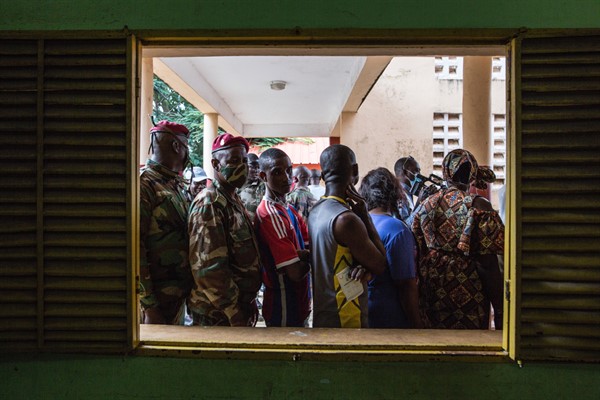Editor’s Note: This is the web version of our subscriber-only weekly newsletter, Africa Watch, which includes a look at the week’s top stories and best reads from and about the African continent. Subscribe to receive it by email every Friday. If you’re already a subscriber, adjust your newsletter settings to receive it directly to your email inbox.
Early last Sunday morning, reports emerged of a shootout close to the presidential residence in Conakry, Guinea’s capital, between pro-government forces and an elite army unit intent on deposing President Alpha Conde. The Defense Ministry initially claimed the attack had been suppressed, but shortly thereafter, photographs and videos emerged on the internet of Conde surrounded and detained by armed troops. Later, Col. Mamady Doumbouya, a former French Legionnaire and the commander of a special forces unit created by Conde, appeared on state television to announce the closing of the country’s borders, the dissolution of the government and constitution, and the creation of a National Committee for Reconciliation and Development that would steer the country for an 18-month transition period.
The events in Conakry renew fears about democratic regression and the return of military rule in a region long regarded as Africa’s ground zero for military takeovers. In the past year, there have been two coups in Mali and an attempted putsch in Niger on the eve of the first transfer of power between two democratically elected presidents since the country’s independence from France in 1960. In Chad, which plays a major security role in the region, the army unconstitutionally seized power after the death of former President Idriss Deby in April.

